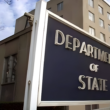William Tobey, a senior fellow at Harvard University’s Belfer Center for Science and International Affairs, a former deputy administrator for defense nuclear nonproliferation at the National Nuclear Security Administration, and a National Security Council
March 4, 2014
In the Ukraine crisis, President Obama faces the most severe national security test of his administration. The results of his examination will be graded not only in Moscow, but also in Tehran, Damascus, and Pyongyang, and by US allies around the world. The crisis confronts the President with one tactical and two strategic problems.
The first strategic problem is restoring his own and US credibility. Regrettably, that credibility has been squandered in Afghanistan with simultaneous announcement of a surge and a future retreat, in Egypt with a schizophrenic policy, in Iran with multiple and moving redlines, and in Syria with a vacillating policy that incredibly left Bashar Assad in a stronger position after US threats to use force against him. When the President speaks of punishment and “costs” attached to failure to comply with arms control and nonproliferation agreements and violations of international law, we cannot afford to have other nations doubt his resolve. A steadfast response to the Ukraine crisis would be a first step toward rebuilding firm knowledge among allies and adversaries alike that the United States will vigorously defend its interests and values.
The tactical problem is how to support Ukraine and deter Russia to prevent the crisis from deepening. Secretary Kerry’s visit to Kiev is a good start. He must also build a diplomatic coalition that will support the principles of democracy, territorial integrity, and self-determination for Ukraine, backed by financial support from the International Monetary Fund, the European Union (EU), and the United States. If Kiev is willing, economic association agreements with the EU should move forward, even if a military alliance with NATO should not.
As for deterring Russia, the G-8 meeting should be moved from Sochi, with President Putin’s invitation to attend made dependent on a stand-down of Russian forces and no further aggression. Work underway to impose financial sanctions and travel limits on Russian leaders who planned and executed the aggression should proceed. The sale of two French helicopter assault ships to be delivered to Russia this year and next should be cancelled. The markets have already voted against the Kremlin’s action, forcing a 150 basis point rise in interest rates, which could drive Russia’s economy into recession. Worse will come, if the crisis persists.
The second strategic problem facing President Obama is to prepare for a different relationship with Russia. His “reset” policy failed because it was based on the false assumption that problems in US-Russian relations were primarily America’s fault. We should not seek a second Cold War; indeed, we should make clear that we prefer not to repeat that very costly conflict. We must, however, make clear that we recognize a pattern of Russian hostility to American interests and values and will prepare accordingly.
Now is a time for American leadership—and not from behind.
William Tobey
senior fellow
EXPERT COMMENTARY
Harvard University’s Belfer Center for Science and International Affairs and former deputy administrator for defense nuclear nonproliferation at the National Nuclear Security Administration













